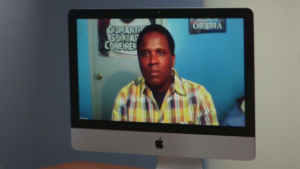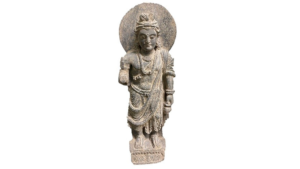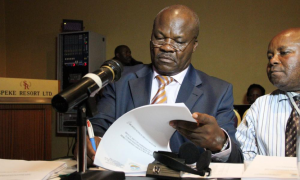Eighty years ago, my grandparents, four of my aunts, and two of my uncles were murdered in Auschwitz-Birkenau. They were among the nearly 440,000 deported from Hungary’s provinces, the last largely intact Jewish population in Nazi-occupied Europe to fall prey to Hitler’s scourge.
By mid-May 1944, the rapid-fire mass murder was underway. It was late in the war. Following Germany’s devastating defeat in Stalingrad and fascist Italy’s desertion of the Axis in mid-1943, Hungarian Regent Miklós Horthy tried to extricate his country from its alliance with Germany. He began having conversations with the western Allies. Alarmed, on March 18, 1944 Hitler summoned him to Schloss Klessheim, a palace near his residence in Obersalzberg. One day later Germany occupied Hungary. Horthy appointed Döme Sztójay, former Hungarian ambassador to Berlin and a rabid antisemite, to the post of Prime Minister.
The Hungarian government immediately prioritized the isolation, expropriation, ghettoization, and deportation of the Jews. And the SS at Auschwitz-Birkenau busily prepared for their arrival. Large-scale construction work—including the building of wooden barracks, four large gas chambers, and repairs and outfitting of the crematoria with new parts—had begun months earlier; SS camp commander Höss now ordered the digging of three large and two small incineration pits—the ovens would not be sufficient to handle the massive number of bodies. He sped up the building of a ramp at Birkenau. He created a railway spur that would bring victims under an arch, directly into the camp, just a short walk to the gas chambers. The SS also tripled the number of sonderkommandos to one thousand. The men of these “special units” would work in twelve-hour shifts, some giving instructions to the victims in the undressing rooms, others cleaning out the gas chambers, cutting hair, harvesting gold from teeth, and loading and unloading the hoist that brought the dead up to the crematoria.
Both of my parents barely survived the madness, the baseless murder of innocents, the unprecedented, obscene maelstrom. Eventually, they made their way to the United States, where they were grateful to live in freedom and for the opportunity—through hard work—to improve their lot.
My father had a kosher butcher shop. He prayed at our local synagogue. He had his worries, but they were not about the desecration of his place of worship or vandalism of his conspicuously Jewish business. After all, he had landed in America—a “paradise” where overt displays of antisemitism were unacceptable.
Were my parents alive today, they would be devastated. They would be losing sleep over the irrational rhetoric, the blaming of the Jewish state for the crimes of terrorists bent on its obliteration, the protests by masses shouting reflexive, ill-informed slogans. They would be glued to the news, and sickened by the biased media.
I am glad they knew decades of postwar safety and peace in their beloved United States. And though I would give anything to have them back in my life, I am grateful they are not here to witness today’s rash of hatred. They had seen this chilling playbook before, and would fear for their grandchildren.




